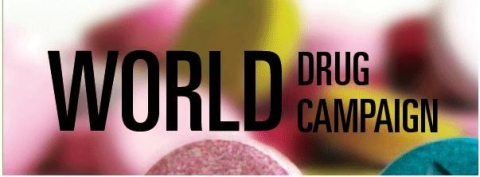
The United Nations Office on Drugs and Crime (UNODC) shared the work of two ICFJ program participants in a publication commemorating The International Day against Drug Abuse and Illicit Trafficking on June 26.
M M Badsha's piece "Gaza Phencidyl Yaba Crossing Border in the Hole of Bamboo, Inside the Pillow," detailed the practices of drug traffickers in his home country of Bangladesh while Chencho Dema's piece, "Substance Abuse Among Women a Growing Problem" offered a close look at drug abuse among the female population in Bhutan. Badsha and Dema were two of 30 South Asian journalists who gathered in Kathmandu, Nepal, in April for ICFJ's "Youth at Risk Multimedia Training Program." After the in-person conference, the participants published stories on youth issues in the region.
Cristina Albertin, representative for UNODC ROSA, was a featured speaker at the conference in Kathmandu. Her work also appears in the UNODC publication.